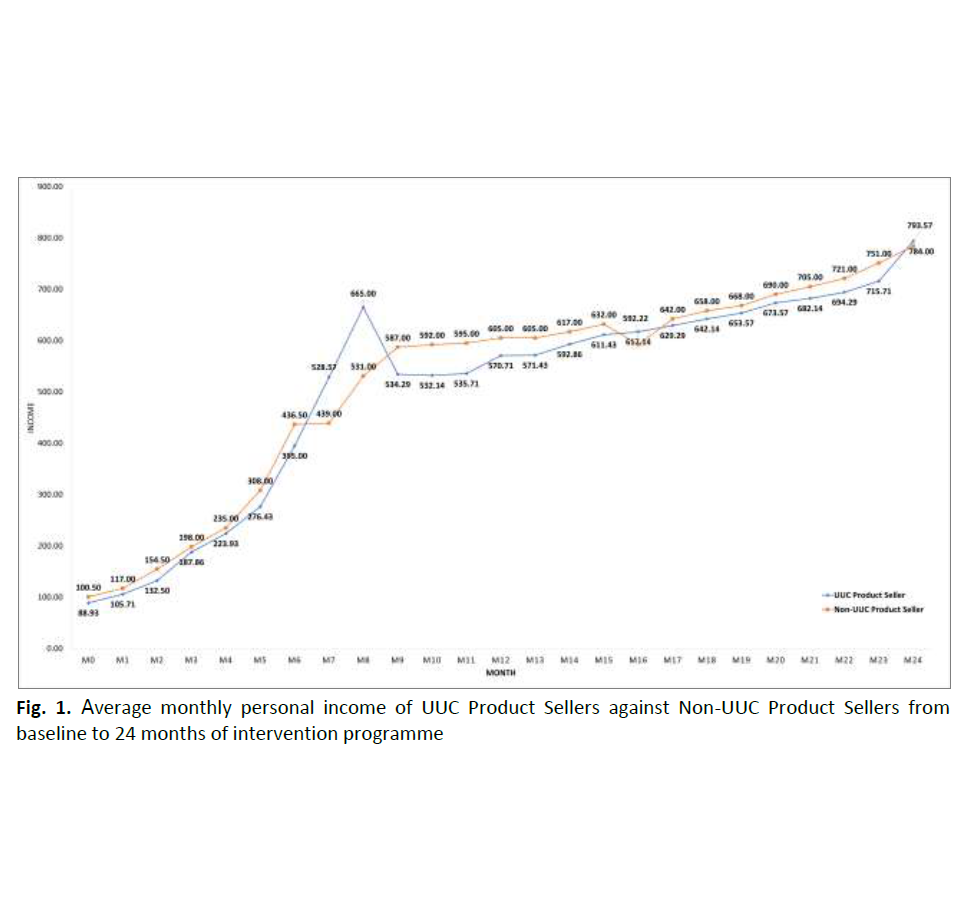Exploring Underutilised Crops for Food Security and Economic Resilience: Insights from the ASSESSCROP Project's Pilot Community Intervention
DOI:
https://doi.org/10.37934/scsl.1.1.5268bKeywords:
Underutilised crops, adoption, income generation, entrepreneurshipAbstract
In Malaysia, food and nutrition insecurity still exists, especially amongst lower-income households. Studies have shown that underutilised crops, known for their nutrient rich profile, present an opportunity to address nutrient deficiencies while potentially contributing to economic improvement. However, their adoption remains limited, due to lack of awareness and market integration. The ASSESSCROP Phase 2 project introduces a pilot community intervention programme to raise awareness about underutilised crops, enhance their adoption, and assess their impact on income levels. The intervention targeted women entrepreneurs from the bottom 40% (B40) income household to lead the transformation and market integration of underutilised crops. This paper will examine the impact of the programme on the underutilised crops adoption and participants' income levels, as well as assessing the overall feasibility of the intervention. The pilot intervention followed a mixed-method approach with six key components including entrepreneurship skills training, product development workshops and providing a support system. The pilot community intervention programme demonstrated the positive impact of promoting underutilised crops. Participants exhibited a better understanding of the value of underutilised crops, leading to improvements in their income levels and business growth. Additionally, participants reported positive changes in their lifestyle, health, and social relationships. Overall, the intervention empowered participants by enhancing their economic outcomes, business expansion, and well-being. The feasibility of the programme was also demonstrated through these positive results, with recommendations for future enhancement. This intervention had demonstrated the potential of underutilised crops to boost economic opportunities, particularly for marginalised groups. Future interventions should consider expanding the outreach to a more diverse population, addressing logistical challenges such as access to raw material, and providing additional support to caregivers. These findings offer valuable insights for integrating underutilised crops into resilient food systems and fostering sustainable food entrepreneurship.









